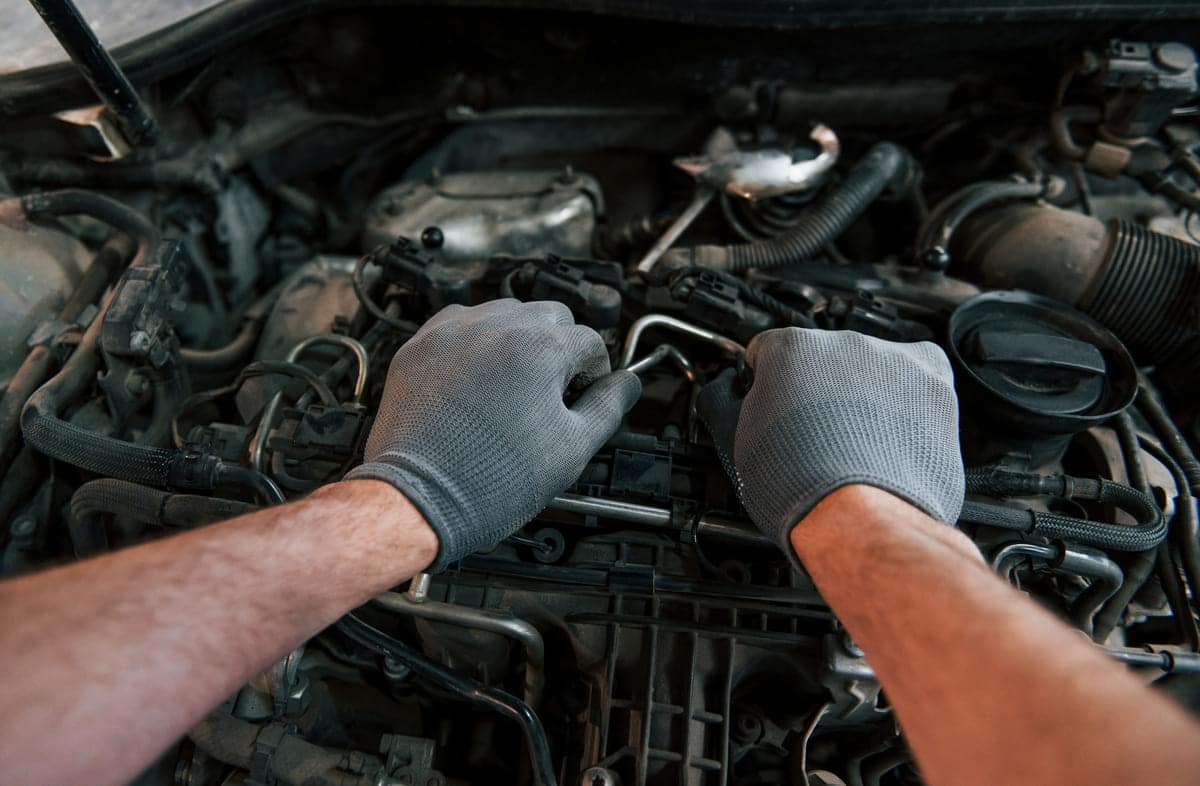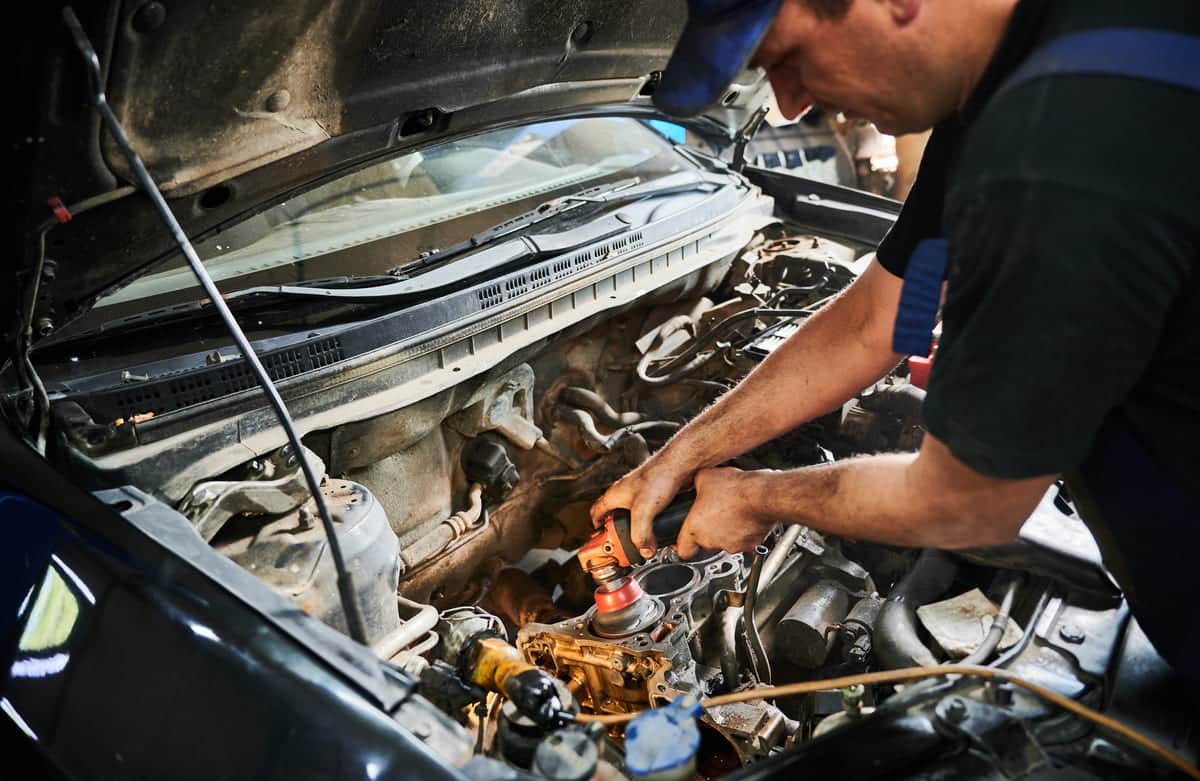
Why You Need a VIN-Specific OEM Manual for DIY Repairs
Imagine you’re working on your brakes, convinced you’ve followed every step to the letter, only to find the parts don’t line up. You double check the manual, but something doesn’t feel right.
This is where a VIN-specific OEM manual comes in. When you’re doing a DIY repair, nothing’s more annoying than realizing a tiny detail was missed, one that only a exact, vehicle specific manual could have told you.
A VIN-specific OEM manual has exact repair instructions for your vehicle, tailored to your vehicle’s specific configuration and model year. So you don’t get mismatched parts and faulty adjustments, and save time and money.
For serious DIY’ers and car owners who want top accuracy, this OEM manual is a must have. It gives clear instructions, minimizes mistakes and gives you peace of mind that the job is done right. With a VIN-specific manual you’re not just guessing you’re following professional grade instructions for your car.
What is a VIN-Specific OEM Manual?
A VIN-specific OEM manual is a manual specific to a vehicle’s unique Vehicle Identification Number (). Each car has a VIN—a 17 character code that reveals make, model, year and specific features. This code ensures the manual matches every unique specification of your vehicle so it’s highly accurate for DIY repairs.
, meaning the manual comes from the vehicle’s maker. This ensures the information in the manual meets the manufacturer’s standards for quality and .
An OEM manual is different from a generic repair manual because it has instructions based on factory approved methods so it’s authentic and accurate.
Key components covered in a VIN-specific OEM manual include:
- Engine Specs: Exact details on engine components and configurations.
- Wiring Diagrams: Detailed diagrams of your vehicle’s electrical systems for troubleshooting.
- Maintenance Schedules: Manufacturer recommended maintenance schedules.
- Unique Repair Procedures: Repair steps specific to your vehicle’s build so it’s accurate.
A VIN-specific OEM manual is like having the manufacturer’s expertise in your hands, guiding you through each repair with ease and clarity.
References
- Honda Knowledge. What is the VIN?. Retrieved from on 06 November 2024.

Why Generic Service Repair Manuals Are Not Enough?
Generic repair manuals can lead to costly mistakes, especially with modern vehicles. They lack the specific details needed for DIY repairs and leave DIY’ers guessing on the key details that are unique to each vehicle model.
Common Pitfalls of Generic Manuals
General manuals might miss model specific information like engine specs, wiring details or recommended torque values. This can lead to incorrect repairs and make things worse. For example a general manual might give a torque range that doesn’t match your vehicle’s exact needs and you end up with loose or over tightened parts.
Example Scenarios Where VIN-Specific Manuals Excel
You’re working on the brakes and relying on a general manual’s specs. The wrong torque setting can affect braking performance. You misinterpret parts due to vague diagrams and end up with a costly misdiagnosis like replacing the wrong sensor.
A VIN-specific repair manual eliminates these risks, with details specific to your car model according to its VIN number.
What are the Benefits of Using a VIN-Specific OEM Manual for DIY Repairs?
A VIN-specific OEM manual gives you unmatched guidance for DIY repairs. It gives you accurate steps, increases safety, reduces costs and helps you maintain your vehicle’s value, it’s a smart investment.
Accuracy in Repair and Maintenance
A VIN-specific OEM manual gives you precise instructions for each vehicle. This accuracy means you’re following the correct procedures, matching your car’s unique parts. For example if you’re replacing a timing belt a general manual might not have model specific details but a VIN-specific manual will have exact steps and specs so you reduce the chance of mistakes.
Enhanced Safety
Working on a vehicle without exact information is risky. OEM standards in VIN-specific manuals ensure safe repair procedures so you minimize the chances of mistakes. Exact torque settings and wiring diagrams keep you in line with the manufacturer’s guidelines as you work on complex parts like brakes or .
Cost-Effectiveness
DIY repairs save money but mistakes can cost more. A VIN-specific manual reduces the need for trial and error, gives you the correct steps and prevents common mistakes that lead to expensive fixes. Following detailed instructions means you avoid unnecessary trips to the dealership and save big.
Preserving Vehicle Value
Precision in maintenance also preserves your vehicle’s long term value. When repairs are done according to OEM standards you’re preserving the car’s integrity. For those who plan to resell, documented accurate repairs is more appealing to buyers who prefer well maintained vehicles over those with haphazard repairs.
Key Features to Look for in a VIN-Specific OEM Manual
A VIN-specific OEM manual has the key features to give you precise repairs with clear visuals, step by step guides and manufacturer specific information.
- Detailed Illustrations and Diagrams Clear visuals are important. They help DIY mechanics understand complex parts, alignments and assemblies. Diagrams reduces guesswork so you can tackle repairs with confidence.
- Step-by-Step Procedures Sequential instructions prevents mistakes. Each step is specific to your vehicle so you get accuracy and make repairs easier and safer.
- Diagnostic Trouble Codes (DTCs) VIN-specific manuals has DTCs specific to your vehicle’s engine or . This accuracy helps you pinpoint the issue and save time and avoid expensive mistakes.
- OEM-Only Tips and Tricks OEM manuals has insider information like what parts to use or replacement intervals from the manufacturer itself so you get a DIY advantage.

How to Find Your Vehicle’s VIN and Use it to Locate the Correct Manual?
Your vehicle’s VIN, or Vehicle Identification Number, is the key to finding the exact OEM manual tailored to your car. Here’s how to locate your VIN and use it effectively:
Locating the VIN: The VIN is typically visible on the driver’s side dashboard, easily readable from outside the . You can also find it on the driver’s side door frame, near where the door latches. This 17-character code is unique to your vehicle, helping you access accurate information.
Using VIN in the OEM Manual Search: Inputting your VIN when searching for an OEM manual filters out irrelevant models, ensuring you receive instructions specific to your car’s make, model, and year. This method guarantees you’re following the right guidance, tailored to your vehicle’s specifications.
Case Studies of Common DIY Repairs with a VIN-Specific Manual
Using a VIN-specific OEM manual can make a big impact on common DIY repairs. Let’s take a look:
- Replacement: Generic guides may not cover specific battery types or connection points unique to your vehicle. With a VIN-specific manual you’ll know the correct battery specs and exact steps for safe replacement so you avoid improper connections or electrical issues.
- Brake Repairs: Brakes can be different between models especially when it comes to pad type, rotor size and adjustment procedures. A VIN-specific guide has the precise details so you follow the right steps for your car’s which improves safety and stopping power.
- Transmission Issues: Transmission repairs are complex and requires exact specifications like torque settings and fluid types. A VIN-specific manual has model specific instructions so you avoid costly mistakes that generic guides may miss and get smooth operation tailored to your transmission type.
These examples shows how VIN-specific manuals gives you accuracy, safety and overall success in DIY repairs.
Quickly Comparing VIN-Specific OEM Manuals vs. Third-Party Factory Manuals:
When comparing VIN-specific OEM manual to third-party repair manual, the advantages of OEM manual is clear. Here’s why:
- Information Reliability: OEM manual is written by the vehicle’s manufacturer so it’s accurate and detailed for your exact model. Third-party manual may not have this precision, they combine details from multiple models that may not match your car’s requirements. That’s why OEM manual is a safer choice for precise repair and maintenance.
- Updates: Manufacturers update OEM manual to include new information like recall notices or revised repair procedures. This means you’re always working with the latest instructions which is crucial for safety and efficiency. Third-party manual doesn’t have these updates which can lead to outdated repair methods.
Choosing a VIN-specific OEM manual means every detail is matched to your vehicle’s specifications so you get reliable and up-to-date information that generic third-party manual can’t match.
Where to Find and Purchase a VIN-Specific OEM Manual?
Getting a reliable VIN-specific OEM manual is easy with where authenticity and customer support is our top priority. Our manuals are designed to match your vehicle’s exact specifications so accuracy for every repair.
Steps to Buy:
- Visit our website and go to the Manuals section.
- Enter your Vehicle Identification Number (VIN) in the search bar to find the manual for your car.
- Select the manual that fits your needs and complete the purchase with our secure checkout.
Final Thought:
Using a VIN-specific OEM manual for your DIY car repairs is a must for accuracy, safety and cost savings. Unlike generic manual, OEM manual gives you model specific information that prevents mistakes and ensures repair reliability. Whether you’re replacing a battery, working on your brakes or tackling a complex transmission issue, the right manual makes all the difference.
Don’t leave your repairs to chance. Buy your OEM manual now from OEM Service Manual and have the peace of mind that you have the right information for your car.




